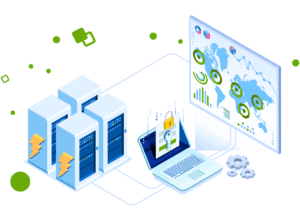Cloud Computing and the ABA’s Ethics Rules: What Lawyers Need to Know

Cloud computing is transforming the way lawyers and legal professionals work by making data more accessible, improving collaboration, and reducing costs. However, it also comes with ethical considerations that lawyers cannot ignore. How do you ensure confidentiality? What are the ABA rules regarding cloud technology? This guide will help you understand what you need to do to adopt cloud computing while remaining compliant with the ABA’s ethics rules.
What Is Cloud Computing for Lawyers?
Cloud computing allows law firms to store and access data over the internet rather than relying on physical servers. Software as a Service (SaaS) platforms like Microsoft 365, Google Workspace, and legal tech tools are significantly reducing IT expenses while enabling flexibility and secure file sharing. For lawyers, specifically, cloud computing allows access to critical case files, client documents, and legal research tools securely from anywhere.
But as beneficial as these technologies are, they can open the door to risks like data breaches, unauthorized access, or even non-compliance with ethical obligations. So how does the ABA guide lawyers in using this powerful tool?
ABA Ethics Rules Relevant to Cloud Computing
The American Bar Association (ABA) has provided specific rules lawyers must follow to use cloud-based services ethically. These rules primarily fall under three categories of responsibility:
- Confidentiality Obligations (ABA Model Rule 1.6): Lawyers must ensure that client information is safeguarded from unauthorized access.
- Competence (ABA Model Rule 1.1): Competency now requires technological proficiency. Lawyers must understand how to properly use cloud services and assess their security.
- Supervision of Nonlawyers (ABA Model Rule 5.3): Firms must oversee vendors (like cloud service providers) to ensure compliance with professional obligations.
With these guiding principles top of mind, lawyers can create frameworks that allow them to ethically integrate cloud computing into their operations.
Confidentiality and Security Obligations
Confidential client data lies at the core of legal work, and safeguarding it is non-negotiable. When using cloud services, here’s how to maintain confidentiality ethically while adhering to ABA rules:
- Encryption: Use encryption for any data stored or transmitted via the cloud. Look for providers offering end-to-end encryption to minimize the risk of breaches.
- Access Restrictions: Limit data access to authorized personnel only and implement two-factor authentication on all accounts.
- Data Breach Policies: Ensure your firm has a clear response plan for potential data breaches, and insist your cloud vendor has similar protocols in place.
Remember, even though cloud providers offer security features, the ultimate responsibility for safeguarding client confidentiality remains with you.
Competence in Using Cloud Technology
Competence now requires more than just legal expertise. Lawyers must have a basic understanding of technology to ensure its proper and ethical use. Ask yourself these questions to gauge your tech readiness:
- Are you familiar with the features and risks of your chosen cloud service?
- Have you educated your team on cloud computing best practices to avoid careless errors like weak passwords?
- Are you continuously staying updated on developments in legal tech and data security?
Competence doesn’t mean you need to become a tech guru. Collaborating with trusted IT consultants, like Heroic Technologies (which specializes in compliance and cybersecurity for legal teams), can bridge this gap seamlessly.
Data Location and Jurisdiction
Cloud computing offers more flexibility, but this often introduces questions about where your data is stored. Many cloud providers operate data centers across the globe, raising issues regarding compliance with laws in various jurisdictions.
Here’s what lawyers need to consider:
- Data Storage Location: Choose cloud providers with data centers in regions compliant with U.S. privacy laws.
- Legal Implications: Understand how international data laws (like GDPR) might affect your client data management.
- Provider Transparency: Verify that your vendor discloses where their data centers are located and whether any third parties have access to your data.
Failing to consider these factors could unintentionally breach ABA rules and even client trust.
Vendor Due Diligence
Not all cloud service providers are created equal, and lawyers must thoroughly vet vendors before integrating their solutions. Some key considerations include:
- Track Record: Does the vendor have a history of serving law firms or heavily regulated industries?
- Security Audits: Request certification details like ISO 27001 or SOC 2 compliance.
- Data Ownership: Ensure the terms make it explicitly clear that you retain full ownership of your firm’s data.
- Service Level Agreements (SLAs): Review SLAs to confirm uptime guarantees, response times, and data backup procedures.
By conducting proper due diligence, you reduce the risk of partnering with a provider that fails to meet your ethical and technological standards.
Best Practices for Ethical Cloud Use
To integrate cloud computing while maintaining compliance with ABA ethics rules, keep these best practices in mind:
- Prioritize Security
Always choose vendors with strong encryption, regular security updates, and secure login protocols like multi-factor authentication.
- Train Your Team
Provide regular training for staff to prevent accidental breaches or mismanagement of cloud technology.
- Backup Data Regularly
Confirm your vendor has robust backup systems to protect against data loss and ensure continuity.
- Monitor Compliance
Continuously review your vendor’s adherence to security protocols and your firm’s compliance with ABA rules.
- Use Trusted Partners
Collaborating with IT providers like Heroic Technologies can simplify compliance while empowering you with secure, customized cloud solutions.
Moving Forward with Ethical Confidence
Cloud computing is transforming the legal industry. From streamlining case management to improving client service, the benefits of cloud adoption are undeniable. However, navigating its ethical complexities must remain a priority.
By understanding and adhering to ABA guidelines on confidentiality, competence, and vendor oversight, lawyers can confidently leverage this technology without compromising client trust or professional integrity.
Want to simplify cloud integration for your firm? Contact Heroic Technologies today to design tailored IT solutions that align with legal ethics and bolster your efficiency.













